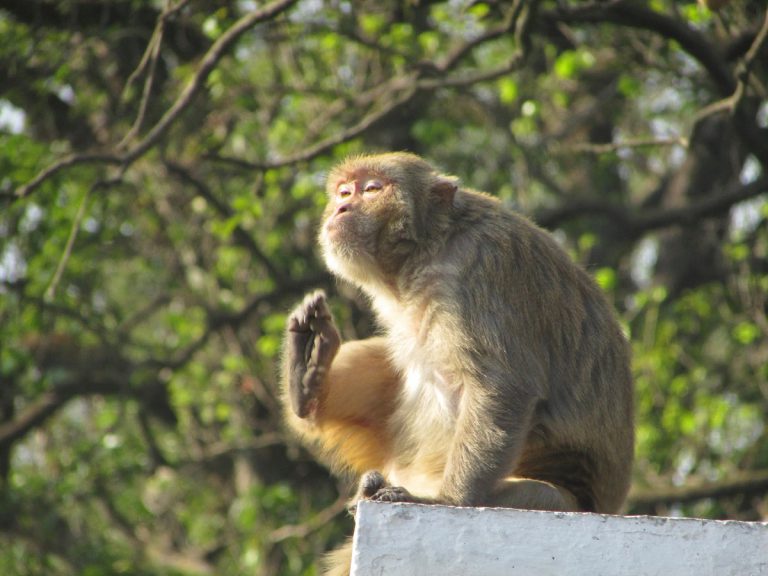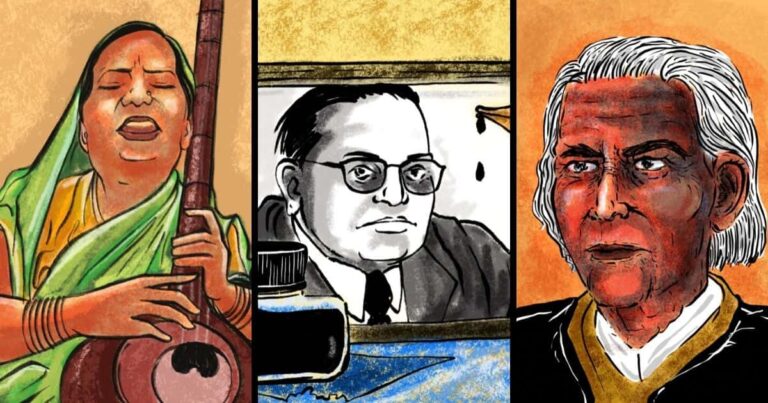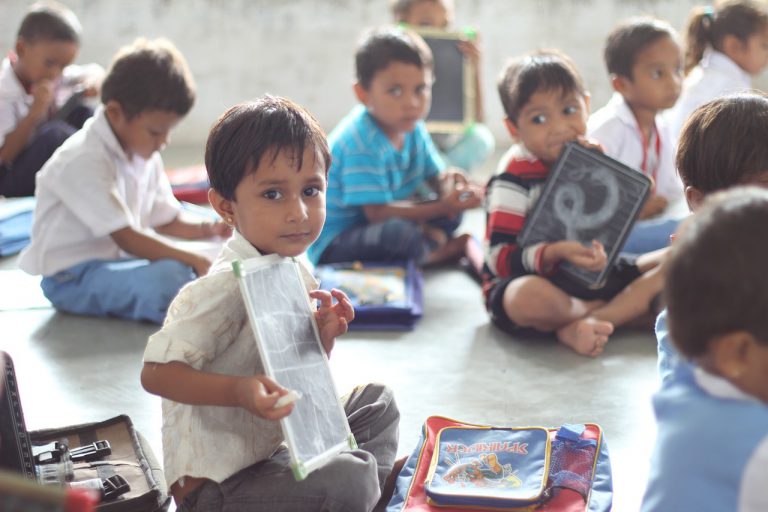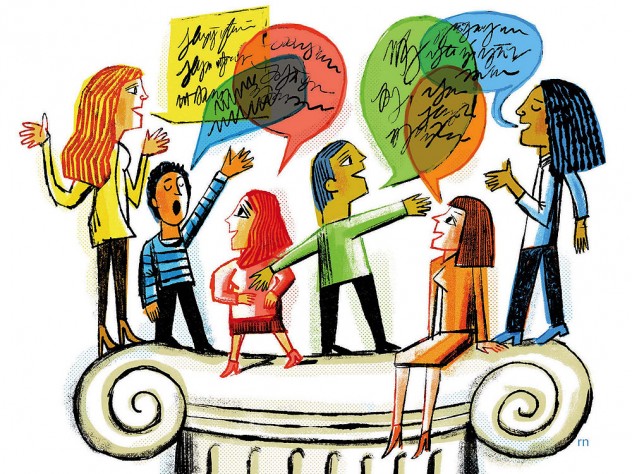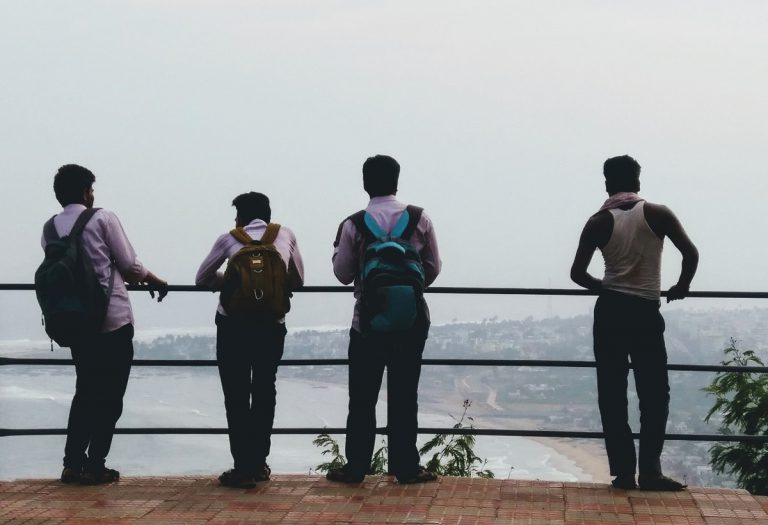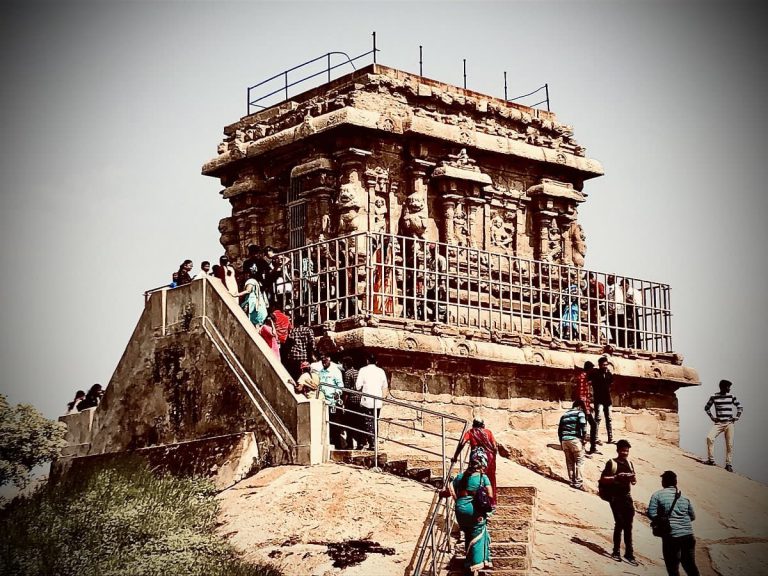How COVID mask is transforming politics into a personal habit of all
Srinath Rao is the Founding Editor of The ArmChair Journal.
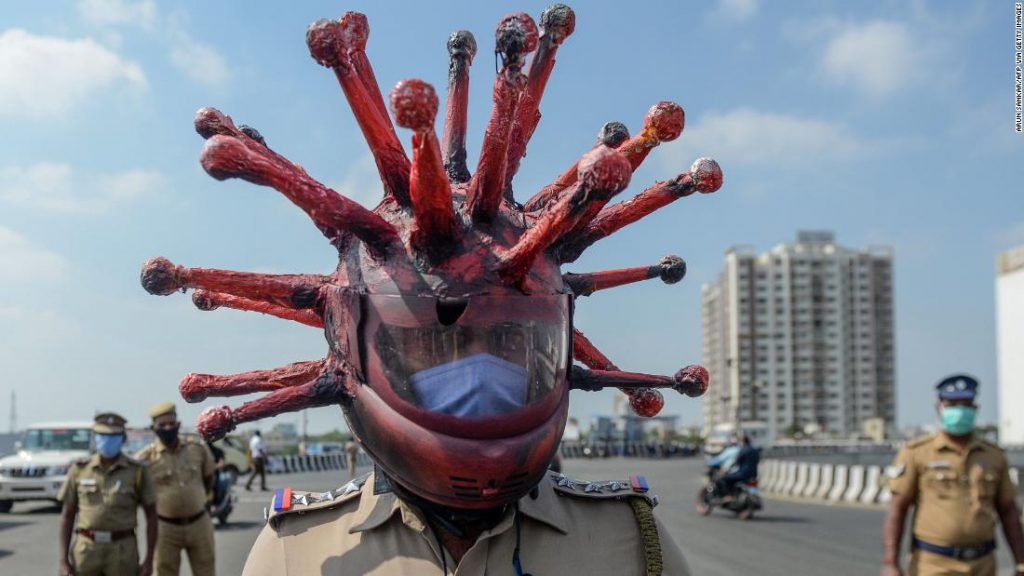
I get taken aback when a beggar asks for alms. It hits me deeply for two reasons: It reminds me of my privilege, and it also introduces me to the courage of the beggar. I might fulfill the expectations of the beggar if I donated a coin. But what I always see in a beggar is not what the beggar expects normally, but a sense of unfairness beyond the norm. A beggar negotiates the sense of unfairness in society, in exchange for a small coin from other fortunate individuals. S/he tries to appeal to the conscience of the donor and convince them they need to donate. However, to address the beggar fairly means to correct the unfairness. The unfairness is so large that a coin can’t correct it. Most of the time, I avoid any eye contact and shy away from the beggars without even donating a coin. I avoid any form of negotiation. But to deny alms to a beggar means to justify my privilege, which is improper to do. Hence, every time I face this situation, I turn into a coward, lose the negotiation, and am filled with guilt.
As a student of political science, I could relate to all experiences of ambiguity as political matters concerned with an attempt to gain an understanding of life, and further a ‘good life’.
Many are losing their loved ones and many are still experiencing pain. Nevertheless, as frustrating as it was, the covid period also seemed interesting. As it began, examples of owners abandoning workers; the exodus of migrant labor; deaths as they moved back home- all appeared to lay bare the increasing inequality perpetuated by capitalism. After all, the virus was brought home by the elite classes themselves who benefitted the most from globalization. Nevertheless, the laboring classes faced the wrath of it the most. There were many essays on paradigm shifts happening and how things could shape out after covid. The one by Francis Fukuyama was one among those I came across in many of my circles. These writings reflected both optimism and pessimism. Optimists saw the opportunities and were hopeful; pessimists were afraid of how things could get worse. All were rational.
By no means am I proposing to predict changes in global patterns. This short essay is a self-reflective piece. It is about the optimism I had in covid’s ability to make politics a personal habit for everyone.
To contextualize my experiences better, I would like to share that I stayed in Delhi for the first couple of months after India practiced the Janata curfew. Later, I went back to my home near Hyderabad to stay with my parents. I wore a full-length PPE kit as I left. Some of my friends stayed back in Delhi for longer, before developing the conviction to return. Making a decision was difficult.
For me, the idea of politics becomes clearer when things are blurred. Most situations in life might not always take a political form in the popular sense, but their fundamental nature is political. The occurrence of politics has a peculiar relationship with the possibility of robust reasoning. When things are fuzzy and unclear, and we choose to take a position, politics come into the picture. When the inability of all possible reasons is realized, politics takes life. Politics is not necessarily an idea associated with exploitation, opportunism, and an evil mind. Neither is it about the dirty politics of power.
Politics is an idea that shows us the path when there is no light. It need not always be between people, it can be between ideas too. When there are competing reasons to make a business decision or choosing to lead a certain kind of life over others, politics is what is at play. Politics is about how we convince and lead ourselves and also negotiate with others. At the best, that is how I categorize them. When we need a little bit of conviction to act, politics is at play. It is about negotiating ambiguity where reason has become defunct. As much as it can be, it is filled with estimates, judgments, reasons, and emotions. As such, whenever there is ambiguity in the reasons we have come up with, towards deciding upon something, politics comes into play to make things possible. It helps us to place some reasons above the others. And the moment ambiguity is negotiated, politics disappear as if they never existed.
Though my description of politics is blurred, I guess the reader gets a sense of what it means. Ambiguity in situations is not an occurrence once in a blue moon. Rather, they seem to occur as part of everyday life. Situations that reason can’t generally conclude need not be highly philosophical as, “What is the purpose of life?”. Instead, they can be as simple as, “When should I have a haircut? What is the right length of hair to keep?” Personally, I never understood what length of hair I should maintain. It was very ambiguous. Another such question is when a child is generally asked, ‘Baby, do you like your mom more, or your dad more?’ Situations like these are very common. Sometimes, hierarchy dictates a reason as better, sometimes it is the articulation. Some other times, it is the charisma of the person who is reasoning. All reasons appear logical, but the better reason is chosen by politics as a process. However, this is not acknowledged enough normally.
In our responses to COVID, ‘touch’ was no more the same again. A peer’s cough could snatch your life away. Not just yours, a member of your family was not too far away. How much can we express through eyes, with our masks on? How long can we work from home? Can we hold important discussions over video calls? How long can we stay without touching the nose or eyes? The skin on the palms felt newer, drier vibes due to frequent washing, or, over-washing? These were little questions that greeted us when covid provided a formidable challenge to the world. Among the bigger questions were: As people migrated backward, is the centralized city-led model of development going to be discouraged? Will globalization be rethought? Are equality and socialism going to expand their influence? Will authoritarianism and state surveillance increase? What is going to happen to liberal democracies? Would civil society gain more empathy? At the least, should we expect public healthcare to improve after we deal with this virus? and so on.
I do not want to quote philosophers interpreting human life as arbitrary and ambiguous. I believe ambiguity is a norm of life and all of us had to succumb to it during these times. COVID is not just the virus that threatened the world, nor is it the alien on whom the whole of humanity waged a ‘war’. For me, it also represented the ambiguity of life. Almost all decisions were difficult. We were forced to think about everything about our existence; from how to arrange for food, how much to buy each time we dared to visit the market, what kind of food to eat, how much do we talk to neighbors, how do we treat the vegetables purchased from the outside, how do we spend time indoors, and so on. The mere act of stepping out of homes appeared like a sacrifice made only to preserve life in return. With locked-down cities, it needed a rebel to walk on the streets.
Face masks became a part of life. When I thought about whether to wear a mask or not, it appeared similar to a question on whether I should believe in god or not. It was ambiguous. If I knew the virus was there around me in some form, it made better sense to believe a mask could make a difference. Wearing a mask as a precautionary measure made sense, though. However, for a more rational mind, sometimes it could not too, as it required an estimate of the possibilities of me contracting the virus and my ability to cope with a scenario where I actually contracted it. After all, I had no idea how much immunity I had. Can I stand the pain? Pain is anyway ambiguous, I can’t express how much it is. As much as I bear, it is bearable. As much as I can’t bear it, I do not exist anymore to bear. All of it, I did not have a prior understanding of.
If I knew God already existed, it would have been easier for me to believe. If I knew the virus existed just around my body, it would have been easier for me to justify wearing the mask. It was clear. Else, it needed some conviction. As long as there was some ambiguity, there was also some space for anyone to believe the pandemic was a hoax– a position unpopularly attributed to the likes of Donald Trump. In a way, pessimists wore masks and took more precautions, while optimists exercised little more freedom and increased their risks. When things became more and more ambiguous, they entered the realm of philosophy. The more philosophical they became, the more conviction they needed for practical application. When they were ambiguous, and yet had a practical application, they became political as well. Those who did not wear masks appeared more philosophical and independent than those who did- contrary to a popular perception that those who did not wear masks could not even think. I favored the pessimists though.
Wearing a mask was more a question of political philosophy than an estimate of risk associated with contracting the virus. When the World Health Organisation (W.H.O) recommended masks only for health care workers in the beginning, I believed the matter had something to do with technical-scientific truth. I did not know it was a recommendation made in view of the availability of masks. If masks were recommended for everyone at the individual level, there may not be masks left for those that needed them the most. The recommendation was a political policy decision made to put public welfare over any particular individual welfare.
Unexpectedly, “Should I wear a mask or not?” became a real political question in the United States. The ambiguity surrounding the true relevance of wearing masks meant that we could not know for certain whether we should. We need to take a position every time we wear them. Else, stop thinking and follow it as a norm, or as a policy measure being enforced by governments. In normal times we don’t realize enough that we live in a political world and most questions that we negotiate are similar to whether one should wear a mask or not. As part of our routine, we feel most questions and situations are clear, as we follow the culture/convention/norm and eliminate politics. I could never convince my father to wear a mask on his own.
It is understandable that a crisis is recognized by how much of the norms are exposed and challenged- bringing back the politics to establish a new norm/convention. Conversely, we experience politics at its peak during times of crisis. Earlier reasons are overridden by newer ones or the older ones that were underappreciated by history. For instance, all reasons for the black film coating on windows of vehicles were overridden when the collective conscience of the country was shaken in the Delhi gang-rape incident. Today, the transparency even helped police in cities to spot people not wearing masks inside cars. The way we looked at ‘Touch’ changed drastically during covid. Things became less absolute. Crises expose and lay bare the fragility of reasoning in the midst of ambiguous existence.
When I was in Delhi, I was casually at home without wearing any mask when we called our maid back to work as we could not manage food on our own. She suggested to me that I should wear a mask and corrected my behavior. My ego woke up to a notion of individuality and equality implicit in such a suggestion. Not that I did not believe in equality of human dignity, but it was submerged under a daily dose of indifference. When ambiguity became apparent in life around, equality expressed itself through the primordial instinct of self-preservation. The primordial instinct became the predominant habit of all classes, genders, and castes. It became the norm.
The boundary of the home became more rigid and all of us had to follow common rules inside- the first of which was to treat everything from the outside with suspicion. If anything was somehow in, the inside had to be sanitized. Deserted streets realized the safety of personal homes and the presence of no one in the middle of the day was never more intimidating. Freedom was as much abhorrent. People who walked on the road appeared both stupid and courageous at the same time, justifying anyone’s hypothesis correlating courage with stupidity. Big political ideas were submerged under the innocence of personal lives. Most evident of them all was, “What’s the right balance between individual freedom and collective security?”
While there were opinions that COVID made us realize how integrated the world was, and how diluted the national borders were, the reality closer home appeared to contradict it. Whenever we brought any vegetables/eatables home, we made a policy that we soaked them in saltwater. In fact, covid has brought borders closer home as we would now treat everything that enters home with special attention. There has to be a passport/permit like being sprayed upon by disinfectants or being soaked in saltwater. Anything that is smuggled in without soaking would be seen with suspicion. Any exchange across the borders of the home appeared doubtful, as is how nations looked at each other. It was justified and wise for us to always doubt our neighbors about their behavior and whether they would bring the virus to our door. In fact, one of my father’s friends was suspicious that his neighbor had intentionally contracted the virus to them as they had a rift earlier.
From a popular perspective, politics is associated with accumulating power. Decisions like engaging with political ideologies, aligning with political parties among the diverse choices, going to vote in the elections, expressing opinions on matters of law, embracing activism to counter political decisions, and the like, are seen as political activities. There is also a category of situations where politics is practiced at a smaller individual level. These situations are similar to resisting non-vegetarian food to avoid mistreatment of animals, avoiding the usage of plastics to preserve the environment, following traffic rules to wait for the red light before crossing the road, suggesting colleagues use gender-neutral terminology, and so on. These are all small acts of politics taken towards participating in a way of life that we would like to see, sometimes also accompanied by a desire to get noticed, and sometimes not. However, politics introduced to us by covid are much more confidential and personal.
Every time COVID forced us to rethink the norm, politics was brought to life, and whenever I spotted the situations as political, existence appeared more artistic. From simple acts like having protocols to treat groceries from the outside, avoiding visiting people (let alone touching them), convincing each other to stay back home as much as possible, treating the housemaid as an equal individual, wearing masks, avoiding going out, and so on, a sense of newness is experienced in an all-permeating manner. In fact, one of my flatmates in Delhi sometimes had morning walks within the home in small circles, to avoid going outside. By tuning us to think towards identifying areas of life where norms/conventions existed in everyday life, politics that entered our personal relations can redefine us if they are sustained and applied more comprehensively.
Extracting the ambiguity out of normalized life situations means providing space for newer interpretations. A habit of conviction and belief in a norm/truth can be frustrating whenever contrary situations are observed. Someone proposing an idea in pursuit of truth could be criticized as the one pitching bunkum to seek attention, a man providing unsolicited advice to a woman could be criticized as the one mansplaining, an upper-caste individual leading a fight against caste struggle can appear non-credulous, and communists having a meal in a KFC can appear insincere, with vested interests. Acknowledging these situations are political means to be comfortable with criticisms and yet continue doing what we intend to do, in good faith without being discouraged from adding value to the world. A man can be comfortable mansplaining a woman with full consciousness of the fact, and with good intent. A communist can enjoy a KFC meal without any guilt. One can appreciate the religion of others while following another. These need not be contradicting choices that introduce a split in the self. Embracing politics as a fact of life can inculcate a spirit of action through experimentation, rather than through conviction. It helps us come to terms with ambiguity.
Perhaps I should not shy away from donating things even if it is too small. There was an elderly couple asking for alms on the street in front of our building. They spotted me when I went into the balcony to breathe some air. I wrapped a 500 rupee note in tissue paper to add weight to it and threw it from the first floor of the building where I stayed. It managed to fall just in front of the gate, too far from the man keen to catch it. He opened the cover, put it in his pocket, did a pranam looking at me, and left. What if the deserted streets of covid gave rise to newer social relations; as if the whole of humanity took a rebirth together, by the time streets were full…thoughtfully under the leadership of the coronavirus!
(The author acknowledges his relative social privilege)
Featured Image Credit: CNN

